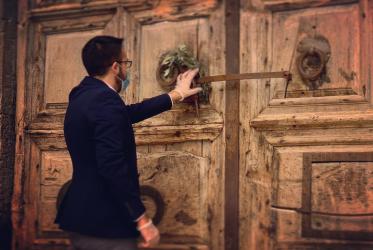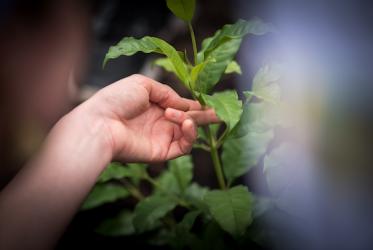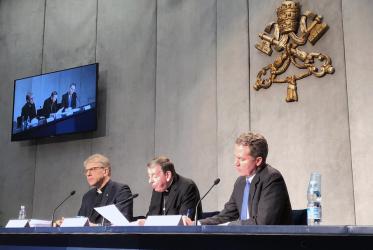Displaying 1 - 18 of 18
Church of South India eco-ministry featured on UNESCO website
17 February 2020
Greenland’s grand Gospel preacher
07 February 2020
A humble servant in God’s herd
10 July 2019
“There are no spare parts for whales”
13 June 2019
Dealing with traumas and healing of wounds
04 June 2019
A faith-based, holistic approach to HIV and AIDS-care
13 March 2019
Paving the way for ecumenical studies, learning English in Bossey
24 September 2018
Winners of WCC photo contest announced
09 May 2016









